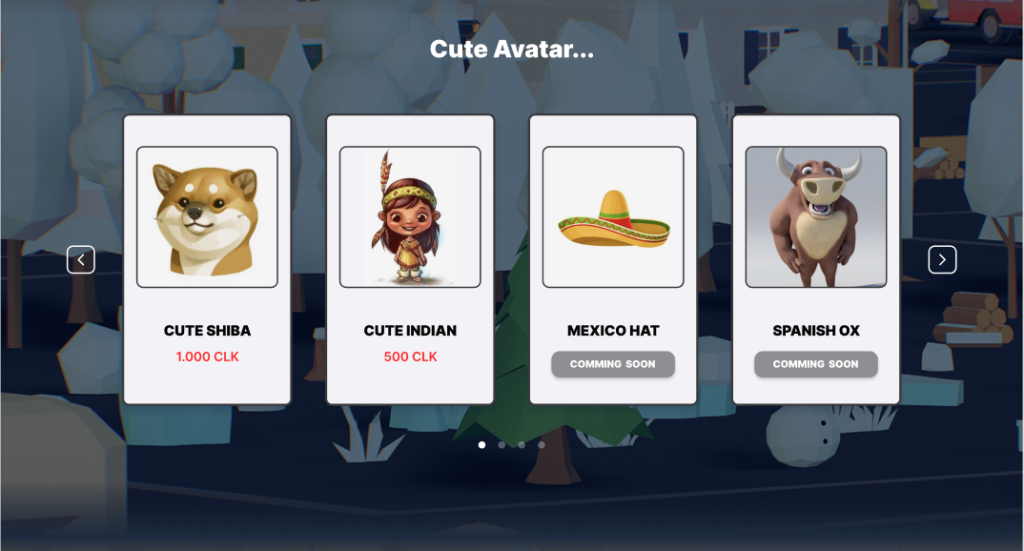Ever since the pandemic forced us to work remotely, we start e-commerce businesses from home and trying to recreate connecting in-person experiences. We’ve tried apps that let us move avatars through spatial audio experiences or play little games. It’s not the same as being together in person, but it’s a step closer.
Two digital worlds that were successful in recreating a previously offline experience are Roblox with a Lil Nas X concert and Fortnite with a Travis Scott concert. That is the idea of the Metaverse: a digital experience spanning interaction, commerce, experiences, interoperability, and the Internet of Things.
It’s actually very difficult to define the Metaverse in a single sentence. Mark Zuckerberg made it a bit more tangible in a recent interview with The Verge:
The metaverse is a vision that spans many companies — the whole industry. You can think about it as the successor to the mobile internet. And it’s certainly not something that any one company is going to build, but I think a big part of our next chapter is going to hopefully be contributing to building that, in partnership with a lot of other companies and creators and developers. But you can think about the metaverse as an embodied internet, where instead of just viewing content — you are in it. And you feel present with other people as if you were in other places, having different experiences that you couldn’t necessarily do on a 2D app or webpage, like dancing, for example, or different types of fitness.
Mark Zuckerberg
The Metaverse, not to be confused with the next Dr. Strange movie, is often used synonymously with VR. Even Facebook is also investing in VR, it’s just a small part of the Metaverse. However you experience the Metaverse, commerce will play an important role. So what could commerce look like on the Metaverse and what might potential role SEO play? Let’s find out in this article.
Why Now?
According to the Google Books n-gram viewer, the term “metaverse” started gaining traction in 2008, 13 years before Mark Zuckerberg announced it a goal for Facebook.

But, of course, he pushed the topic into the spotlight. The reason he did that, though, is an important element of commerce on the Metaverse.

Several bricks laid the foundation for Facebook’s part in the Metaverse. The creator economy allows everyone to be a creator and Facebook wants to be part of it. Social networks started to provide native storefronts and drive the decentralization of e-commerce, together with platforms like Shopify and Stripe.
The Blockchain laid the foundation for decentralized networks and currencies. Facebook tried to launch its own Cryptocurrency (Libra), which it then scaled back into the Diem Association.
The Metaverse might also allow Facebook to play a stronger role in e-commerce again. As I laid out in a previous post, organic product discovery doesn’t happen on social networks anymore.
E-commerce on the Metaverse = Meta-Commerce
Digital commerce is not the same as commerce of digital goods. On the Metaverse, the line between physical and digital goods is blurry. NFTs are a good example.
The Blockchain already enables new forms of commerce like NFTs today, which can already be traded and sold like a physical good on Shopify. Digital goods get value from uniqueness, just like the first vinyl edition of Michael Jackson’s album Bad or the first Iron Man comic. Before NFTs, jpegs were worthless because you could replicate them infinitely. Giving digital goods like images, videos, or music a unique and provable timestamp creates new, digital markets on the Metaverse.

Cre: MetaLUCK
A key principle for commerce on the Metaverse is interoperability, the ability to take products or information from one platform to another. An example that already exists today is Crypto Punks, which are “unique collectible characters with proof of ownership stored on the Ethereum blockchain”. Having a legit Crypto Punk as Twitter avatar already creates status among those who know about them.

Just like Facebook, The Metaverse creates a new playground for people to gain and display status. Klout, which measured status on social networks, was an early attempt but more immersive digital worlds will provide more opportunities.
As we can see with the influencer economy, status begets commerce. Already today, people with a lot of attention build billion-dollar brands (Rihanna: Fenty Beauty, Kylie Jenner: Kylie Cosmetics). That will continue and intensify on the Metaverse, possibly with new products that we can’t foresee today.
SEO in the Metaverse
A follow-up question I want to answer is, “What’s the role of SEO in a decentralized e-commerce world?”
Let’s see in two angles: SEO as a channel and SEO as an industry.
1. SEO As A Channel For E-Commerce
To understand the impact of storefronts on social networks on SEO as a channel, we just have to look at marketplaces like Etsy, Amazon, Ebay, or Walmart. The implementation might be very similar.
I recently ordered a new coffee kettle from Fellow, which has an Amazon store and their own site. Fellow.com gets ~60K branded and ~36K non-branded visitors to their site every month.

Amazon doesn’t have a subdirectory for store names, just amazon.com/stores/page/, but with SEMrush, we can search for a keyword in amazon.com’s URLs and add up the traffic.

For August, I get to roughly ~7,250 monthly visits when adding up traffic from each Fellow page on Amazon. Fellow’s products probably get some of the traffic from category pages, for example “electric kettle’ (amazon.com/electric-kettle/).
Amazon’s electric kettle page gets ~22.5K monthly visitors but the competition for Fellow is fierce: the category page lists 40 kettles. If each of the 40 got an equal amount of clicks from organic traffic, they would get 550 clicks (22,500/40).
To draw a line under the calculation, Fellow gets a lot more organic traffic from its own site than its Amazon listing. Keep in mind this is just one example and there might be others that tell a different story but in this case, having their own site is a good thing for Fellow.
2. SEO as an industry
SEO jobs have exploded since the pandemic. To be clear, some SEOs also lost their jobs and that’s tragic. Across the board, though, we see more opportunities than ever before: Indeed lists over 11,000 full-time SEO jobs in the USA as of August 2021. Over 2,000 have a yearly salary higher than $90K.
Even if some shops move on to a social network, I wouldn’t expect SEO to become redundant for e-commerce. There will be enough independent merchants left, just like not every shop is exclusively on a marketplace today.
Independent from SEO jobs, businesses need to understand the difference between rented and owned web property.
It’s tough to say what role SEO will play in the Metaverse, but we do know that content will be user-generated. Whenever many agents in a system create a lot of output, discovery becomes a bottleneck. Search on the Metaverse might look different than it does today, but I find it hard to see a digital experience with commerce and creators that doesn’t have a search component to it.
CodLUCK has already developed a virtual world and metaverse to connect everyone, every business,… packed with funny games, working spaces, buildings for advertising,… It’s open to everyone, wherever you are in the world – all you need is the internet. Explore now!

Source:


